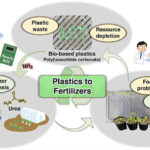Tag Archives Environment

Ireland looks to seaweed in quest to curb methane from cows
While there’s lots of interest in the method, it’s years away from mass production

Investor group warns livestock industry needs to do more on methane
FAIRR Initiative report could influence how, and where, members invest

EU’s GHGs rise by nearly a fifth on economic rebound

Debating carbon decrease priorities
There’s debate among agriculture organizations on how to measure the sector’s contributions

Farmers say COP26 targets can be met
Summit delegates were told that governments must make sure producers receive the support they need to help reduce climate change impact

Comment: A global methane pledge is great – but only if it doesn’t distract us from CO2 cuts
Climate change: The atmospheric life of methane and CO2 are dramatically different, but we aren’t in an either/or situation

Plant from plastics: bio-based polymers transformed into fertilizer
Science Notes: The new system can help fight pollution and resource depletion

Lowering livestock methane through heritable microbes
Breeding programs based on microbial DNA could help meet climate targets faster

Opinion: Better framework for fertilizer discussion needed
Assuming a direct correlation between reduced product use and yields is overly simplistic

Are greenhouse gas emission reduction goals too costly?
Reducing fertilizer use might be a tough target without cutting production and incomes, says industry

